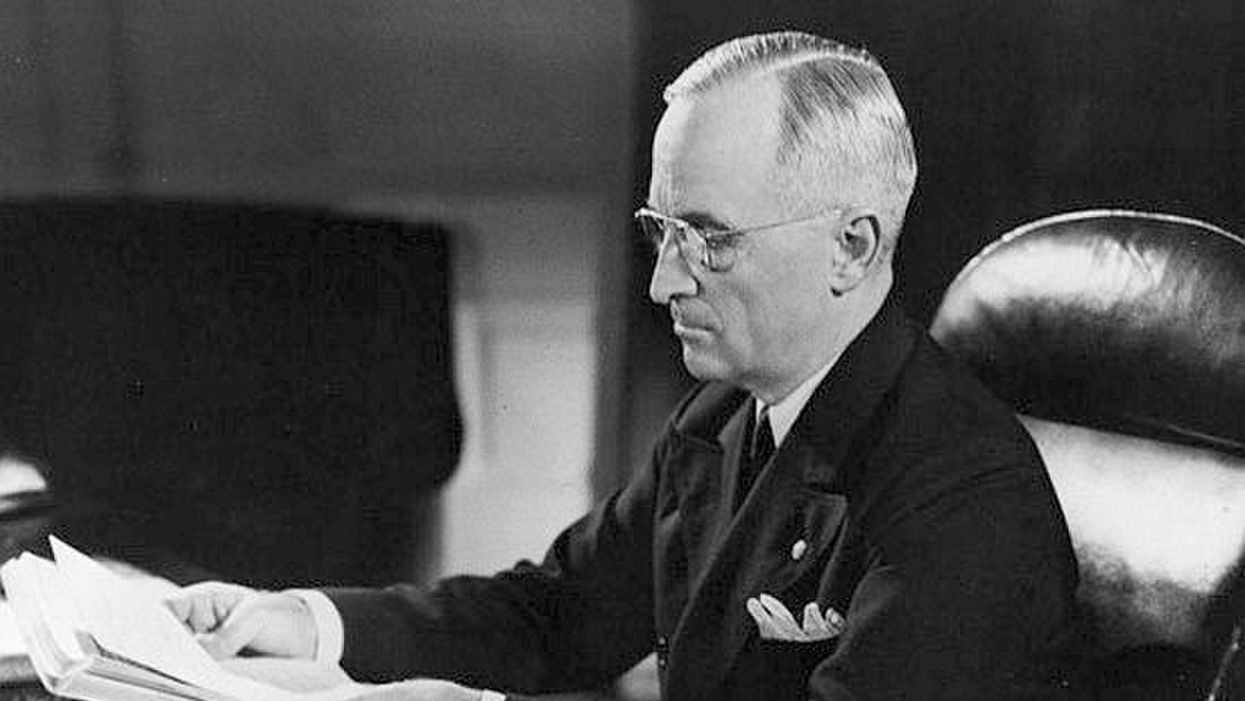Did America Ever Care About Kids Enough To Provide Quality Child Care? Yes
"If you think education is expensive, try ignorance," the old bumper sticker says. Yet for decades, national and state lawmakers have flaunted their ignorance of what makes a good society by stupidly shortchanging our investment in our youngest minds. At the same time, corporate and governmental policymakers have intentionally rigged our economic and political systems to hold down workers' incomes even while their living expenses rise. The result is that mothers and fathers alike are herded into whatever jobs or jobettes are available — just to make ends meet. This leaves young children to ... what?
Let's be clear: Caring for children is expensive. Kids are labor-intensive — assuming, that is, the goal is not merely to keep the little creatures watered, fed and restrained, but actually cared for intellectually, emotionally and socially. Today, only the wealthy can purchase primo attention from private providers and, thanks to ever-attentive lawmakers, the rich even enjoy a special tax-break loophole for their nannies. But workaday families — especially the majority stranded on the lower rungs of the economic ladder — are mostly on their own when it comes to child care.
For our society to rank up with other developed countries, there is no shortcut. We must choose to make a significant public investment to sustain an egalitarian system of quality child care ... or maintain our present "We don't care" policy toward our kids.
As inadequate as today's "care" network is, it's only fair to note that the rickety thing actually is heavily subsidized. Not by government, but by the caregivers hired by center owners to tend to the children! Most of these providers are paid less than $11 an hour — on par with parking lot attendants and less than many dog walkers. The hours are long, the ratio of children-to-caregivers tends to be impossibly high, job stress is severe and staff support is meager.
Even as the need for care has soared in recent years and centers' fees have climbed, pay for caregivers (overwhelmingly women and mostly low-income women of color) has stayed flat. Benefits and job security? Get real. Usually, workers' wages are so low that they can't afford to enroll their own children in the centers where they attend to others' young ones. Training and career development? The U.S. model does not consider caregiving a profession or a career.
A mind-warping brainteaser: What country set the gold standard for high-quality, universal child care? Hint: The very one that now fails so pathetically, stupidly and shamefully to meet that crucial need. Yes, it's the mighty USA!
It came at the onset of America's commitment to World War II. With masses of men deployed, masses of women were called to rev up economic production by working as everything from engineers to Rosie Riveters. Their children? Believe it or not, our government responded directly and effectively by passing the Lanham Act in 1943. The new law treated child care as a core component of our nation's infrastructure, key to a unified war effort. This was a national/local government partnership that set up and staffed a publicly subsidized network of more than 3,000 Lanham Act preschool centers all across America, open to all.
These weren't mere child-minding barns, but full-scale teaching and nurturing centers that paid for accredited teachers and staff and trained them in childhood education. The program was widely affordable: For about $.50 a day (equivalent to less than $8 today) a child could get 12 hours of quality care. Twelve hours! The fee included lunch and snacks; the centers operated all day, year-round, reached families in 47 states and aimed at a 1-to-10 teacher-student ratio. Subsequent studies found the program enormously beneficial to the well-being of children, parents, communities and the nation.
So, of course, right-wing extremists killed it. After the war, they loudly insisted that women return to housewifery and that the government get out of child care. Succumbing to their pressure, President Harry S. Truman axed the budget for the Lanham Act centers shortly after Japan surrendered in 1945.
To find out more about Jim Hightower and read features by other Creators Syndicate writers and cartoonists, visit the Creators webpage at www.creators.com.




